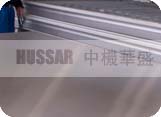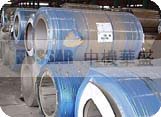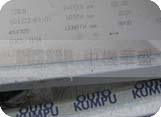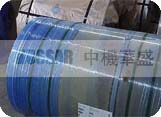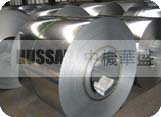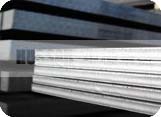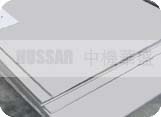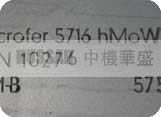| Hussar Machinery Equipment Import & Export Corp. |
|
|
| Home | Brief | Products | Materials UNS | Standard | Order Style | On Stock | Service |
| Alloy 825 (UNS N08825) W.Nr. 2.4858 An Nickel-Iron-Chromium Alloy Developed for Exceptional Corrosion Resistance In Both Oxidizing and Reducing Environments ------------------------------------------------------------- General
Properties The nickel content of Alloy 825 makes it resistant to chloride stress-corrosion cracking, and combined with molybdenum and copper, provides substantially improved corrosion resistance in reducing environments when compared to conventional austenitic stainless steels. The chromium and molybdenum content of Alloy 825 provides resistance to chloride pitting, as well as resistance to a variety of oxidizing atmospheres. The addition of titanium stabilizes the alloy against sensitization in the as-welded condition. This stabilization makes Alloy 825 resistant to intergranular attack after exposure in the temperature range which would typically sensitize un-stabilized stainless steels. Alloy 825 is resistant to corrosion in a wide variety of process environments including sulfuric, sulfurous, phosphoric, nitric, hydrofluoric and organic acids and alkalis such as sodium or potassium hydroxide, and acidic chloride solutions. The fabrication of Alloy 825 is typical of nickel-base alloys, with material readily formable and weldable by a variety of techniques. ------------------------------------------------------------- Applications Air
Pollution Control ------------------------------------------------------------- Standards ------------------------------------------------------------- ------------------------------------------------------------- Corrosion
Resistance ------------------------------------------------------------- Stress-Corrosion
Cracking Resistance ------------------------------------------------------------- Pitting
Resistance |
|
Add:E2 Room 2317,Yuan Chen Xin Office Building,No.12 YuMin Road,ChaoYang District,Beijing,China,100029 Copyright 2010JING ICP No.10051934-1


